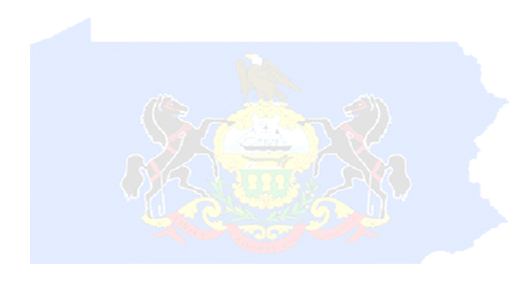In Brief...
When it comes to Society and State:
- Pennsylvania's government has been growing at more than three times the rate of inflation for over 50 years!
- Taxes are too high because spending is too high, and spending is so high is because the state has taken on many roles that properly belong to society.
- Taxes, spending, and the size of government can be substantially reduced through the Separation of Society and State.
- Establish an organization called Society to deal with societal issues using the federal and state Constitutions as the framework, except that Society would have no coercive powers, such as taxation or regulatory powers.
- Society would need to raise any necessary funding by means of voluntary contributions.
- Society would maintain the safety net that is necessary to help our most needy citizens.
- Society's voluntary regulations would continue to protect the consumer while allowing for new developments to be introduced.
- The time has come for the Separation of Society and State. The alternative is to do nothing and wait for the oncoming bankruptcy.
- A detailed example of the workings of the Separation of Society and State and the Separation of Regulation and State can be found in the gubernatorial platform novel, Atlas Snubbed.
You can link to this page directly by using
http://KenK.org/soss
In Depth...
Taxes are too high.
The reason why taxes are so high is because spending is too high. In fact, Pennsylvania's government has been growing at more than three times the rate of inflation for over 50 years! Where the state took in $100 per citizen in 1964, today it's over $2,200 and growing. It doesn't matter if the state is controlled by Democrats or Republicans, and it doesn't matter if we have low inflation or runaway inflation like we did during the Carter Administration, government spending continues to rise at an alarming, unsustainable rate.
The reason why spending is so high is because the state has taken on many tasks that properly belong to society, such as welfare, unemployment compensation, education, health insurance, health care, county fairs, jobs programs, libraries, game lands, public transportation, policing, business regulation, and numerous other functions, many of which are not mentioned in the Pennsylvania Constitution. In fact, the state has taken on so many societal functions that today over 80% of the Pennsylvania budget is dedicated to social giveaway programs. The inevitable result has been higher taxes, higher spending, and less and less money remaining in the hands of those who earn it. Two-income families have now become the overwhelming norm, and still the spending grows--and taxes along with it--galloping along at more than three times the rate of inflation. It's obvious that if this trend continue, it will ultimately bankrupt us all. Or, as Margaret Thatcher famously said, "The problem with socialism is that you eventually run out of other people's money."
But what can be done? Many of these social services are crucial to our way of life, and Pennsylvanians have come to depend upon them, especially the elderly and the needy. These programs can't simply be abolished outright; that would be a cure worse than the disease.
The Separation of Society and State
The answer is the Separation of Society and State. All these well-meaning, tax-funded programs must be transitioned away from state control and back to society where they truly belong.
Now, if these giveaway programs are to be administered effectively without state control, there obviously must be an agency to administer them. Call it "Society". Society would be defined by a written constitution and look very much like the government we have today. For example, at the federal level there would be a President of Society with the attendant Senators and Representatives. At the state level would be a Governor of Society with the state Society's Senators and Representatives. At the local level would be a Mayor of Society and Society's town council. They all would operate very much the same as their governmental counterparts except for one key item: Society would not possess the coercive power of taxation, or any coercive powers at all, for that matter.
In practice, that means that the federal Society could vote to establish a Social Security program, but not garnish your wages for contributions; a state Society could run schools, but can't tax your property to pay for it; a local Society could install handicap sidewalk ramps at street corners, but not levy an earned income tax to buy the cement. In all cases, the respective Societies would need to raise the necessary funding by means of voluntary contributions. Society could not tap into the seemingly bottomless pit of a citizen's hard-earned money through coercive taxation. Society would need to hold fund drives, bake sales, telethons, and the like to raise needed revenue. And if there are not enough contributions to fund their grand schemes, Society would have to tighten their belts and prioritize their spending, or seek out additional voluntary funding. Cajoling would take the place of confiscating.
Note how this puts an automatic governor on runaway spending. If a program is important enough, such as hurricane relief, people would gladly contribute. In general, the eleemosynous entity known as Society would become a rallying point for the caring people of the nation. But if a program is counterproductive, such as junkets for members of Society's Congress, it's highly unlikely that the measure would pass, let alone obtain funding. Only the most important programs would continue; pork barrel spending would end. The social safety net would remain intact; politics as usual would not. Best of all, the runaway spending and taxing that has been going on for the last 50 years would finally be reversed. Spending would drop. Taxes would drop. People would have more money in their pocket to help fund what they think is important, not what some special interest thinks is important.
The Separation of Regulation and State
In addition to administering various worthy programs, Society could perform another valuable societal function currently administered by the state, namely, setting standards for the conduct of business and other public affairs. That would include a broad range of activities, such as the cleanliness of restaurants, banking regulations, environmental standards, building codes, marriages, adoptions, accounting standards, health care professionals, hairdressers, day care centers, and more. Society would take on regulatory responsibility for them all. But there would be one fundamental difference between Society's regulations and the state's: since Society has no coercive powers, all regulations would be voluntary.
One of the benefits of voluntary regulations is that they would continue to protect the consumer while allowing for new developments to be introduced without going through a lengthy certification process. Beneficiaries of a voluntary regulation environment would include alternative medicine, hair braiders, Ebay sellers, teachers, tattoo artists, paralegals, advertisers, realtors, babysitters, and many others. Businesses who met Society's requirements would advertise the fact; those that didn't, couldn't--not without committing fraud--and consumers can decide for themselves whether to patronize a given business or not. Another benefit is that voluntary regulations are far cheaper. A study by the Cato Institute in Washington demonstrated that instituting non-governmental regulations would "drastically reduce the compliance costs". Voluntary regulations would encourage innovation, shrink an ever-expanding government, and save money.
The Result
Once Society is established, program after program can be transitioned from the state to Society, and each transfer would result in a reduction in the cost of government and a corresponding reduction in taxes. The Pennsylvania Personal Income Tax could be phased out over the next few years.
No other solution promises to halt the inexorable growth of the welfare state or relieve the crushing burden of over-regulation. All they do is nibble at the edges of the problem rather than address the underlying issue.
The time has come for the Separation of Society and State. The alternative is to do nothing and wait for the oncoming bankruptcy that is so plainly visible.
A detailed example of the workings of the Separation of Society and State and the Separation of Regulation and State can be found in the gubernatorial platform novel, Atlas Snubbed.


